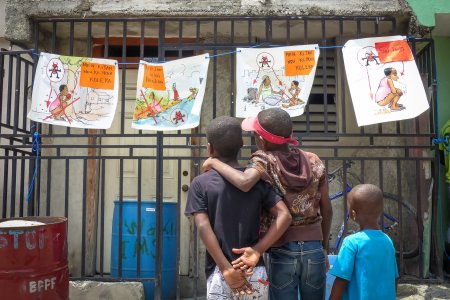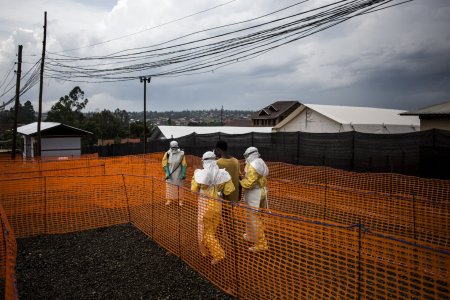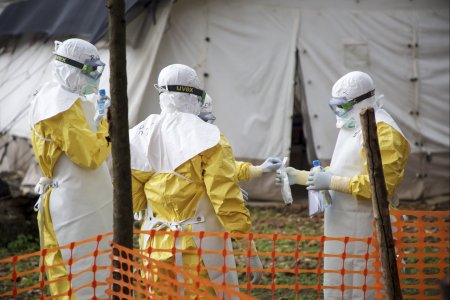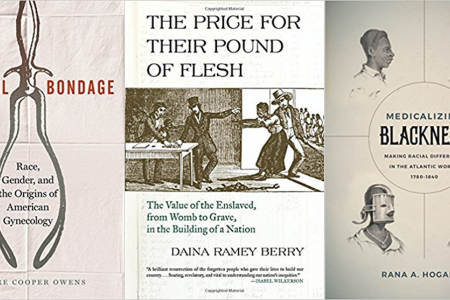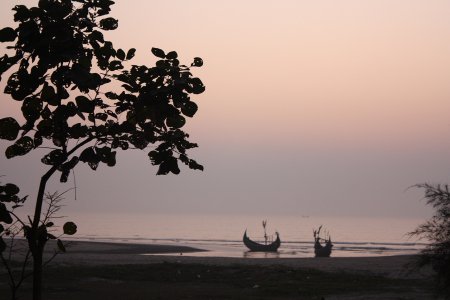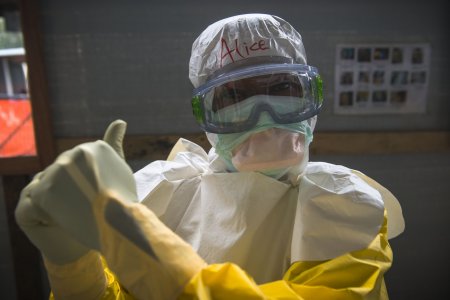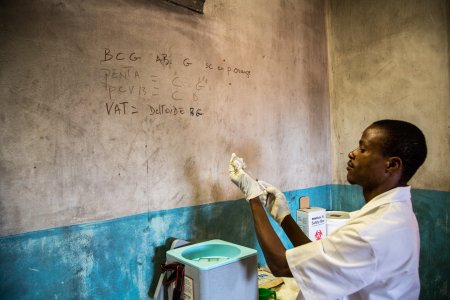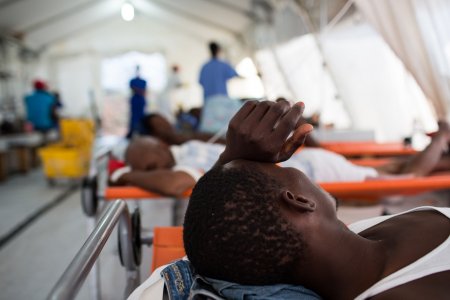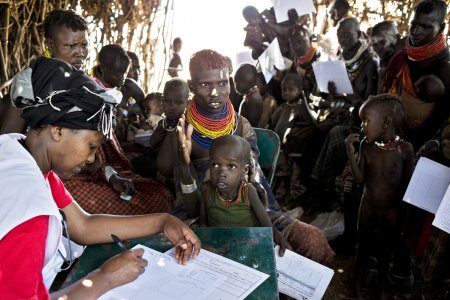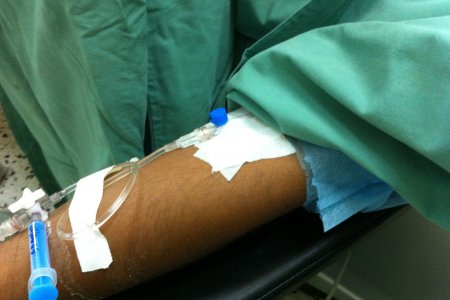Providing care for individuals, responding to disasters
What are the challenges, limitations, constraints, paradoxes and potential breakthroughs of humanitarian medicine, which specialises in treating marginalised and deprived populations affected by crises? Deconstructing a number of “healthcare utopias,” the studies contained in this volume review the history of global health innovations to which MSF has contributed. They also explore the current state of knowledge, practices and concerns relating to certain focus areas, such as nutrition, AIDS, water supply, food aid, reconstructive surgery, epidemic response, surveillance and disaster epidemiology.
About "Choléra, Haïti, 2010-2018, Histoire d’un désastre" by Renaud Piarroux
The cholera outbreak in Haiti in October 2010 was among the deadliest in modern history, with 800,000 people infected and 10,000 fatalities. And these are just the official figures. The actual death toll was far higher, as evidenced by numerous retrospective mortality surveys, and can only be expressed as an order of magnitude: to wit, several tens of thousands.
This book recounts eight years of struggle on two fronts that the author shows to be closely linked: the field, with the implementation of measures of prevention and case management; the scientific debate, in the form of a shattering of the dominant environmental theory concerning the origin of the epidemic.
Ebola outbreak: a failure in social mobilisation
On August 1st 2018, the Democratic Republic of Congo’s health authorities declared the country’s tenth outbreak of Ebola virus disease (EVD), this time in North Kivu province. Just over a year later, this outbreak is still ongoing, with several dozen new cases reported each week. In the space of 12 months, 3000 people contracted the disease and 2000 of them have since died. This latest outbreak can be seen as a failure at two levels: first, it is already the second biggest EVE outbreak ever recorded, and second, two out of three patients have died. What are the reasons for this failure? What operational strategies should we develop in response?
Interview with Jean-Hervé Bradol, Director of studies at CRASH, by Elba Rahmouni.
Ebola in the DRC: between operational trial and error and scientific uncertainty
Rebecca Grais, Research Director at Epicentre, MSF’s epidemiology arm, and Pierre Mendiharat, Deputy Director of Operations for MSF-France, offer their insights on the Ebola outbreak in North Kivu Province in the eastern Democratic Republic of the Congo (DRC). This joint interview in four parts (the outbreak, social context, treatments, and vaccination) aims to show how science and practice interact around each outbreak.
The story of patient Philippe Lançon, after the terrorist attack against Charlie Hebdo
Philippe Lançon works as a journalist for the French satirical magazine, Charlie Hebdo, and Libération newspaper. His book, Le lambeau was published in April. As the author and subject of his narrative, he relates his experience as a hospital patient after surviving the terrorist attack against Charlie Hebdo during its editorial meeting on 7 January 2015. Although a “novice" when it comes to hospitals and operating theatres, he is a seasoned journalist. He is currently writing for Libération’s culture page, but previously reported on armed conflicts (Iraq and Somalia). So he’s no novice when it comes to casualties of war. In 2015, he became a reporter reporting on himself and on hospital surgery.
Mortality emergency threshold: A case for revision
The crude mortality rate (CMR) is one of the most widely used indicators at MSF and the humanitarian sector to evaluate the severity of a health crisis within a given population. It is widely recognized that a CMR equal to or greater than one death per 10,000 persons a day signifies an emergency situation requiring an immediate response. However, the usage of the standard emergency threshold as “1/10,000/day” is very questionable: it goes against the official recommendations endorsed by humanitarian organizations and ignores the worldwide decline in mortality rates over the last 30 years.
Race and health. A fascinating article on the history of medicine
An article entitled "Médecines du corps noir" [Medicine and the black body], published on the La vie des idées website on 27 April, discusses three American history books on the origins of medicine in the United States in the context of slavery in the 18th and 19th centuries. Between experimentation and resistance, the history of relationships between race and health illustrates the decisive role played by African slaves.
The response to the Ebola epidemic: negligence, improvisation and authoritarianism
If MSF has held a preponderant position in the response to the Ebola crisis, it owes it just as much to its intervention capacities as to its capacity for criticism. The following article by Jean-Hervé Bradol embodies perfectly the latter in pointing to the issues that appeared on the occasion of this epidemic.
The Last Mile. Can we afford to keep believing in the eradication of polio?
In the 1980s, a global commitment was made to eradicate polio in the wake of the eradication of smallpox. As far as the world health community was concerned, this successful experience made it an example model on which to base future campaigns against infectious diseases.
The plague and cholera
Three years after it occurred, Haiti's cholera epidemic is still in the news.
Humanitarian exoticism
This article is about humanitarian exoticism and culturalist convictions: those to which members of NGOs currently adhere.
Torturing in peace with medical help
Two operational situations have recently caused Médecins Sans Frontières to confront the question of torture and the instrumentalisation of medicine by those who practise it.

